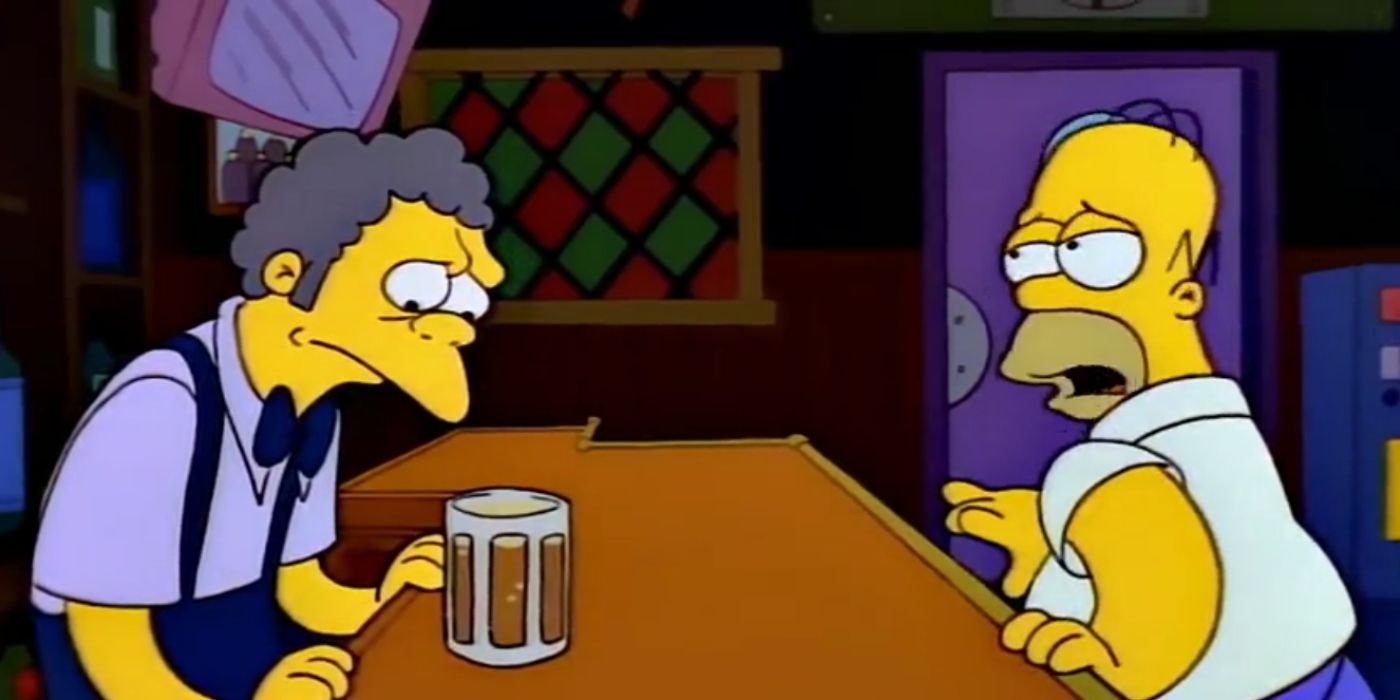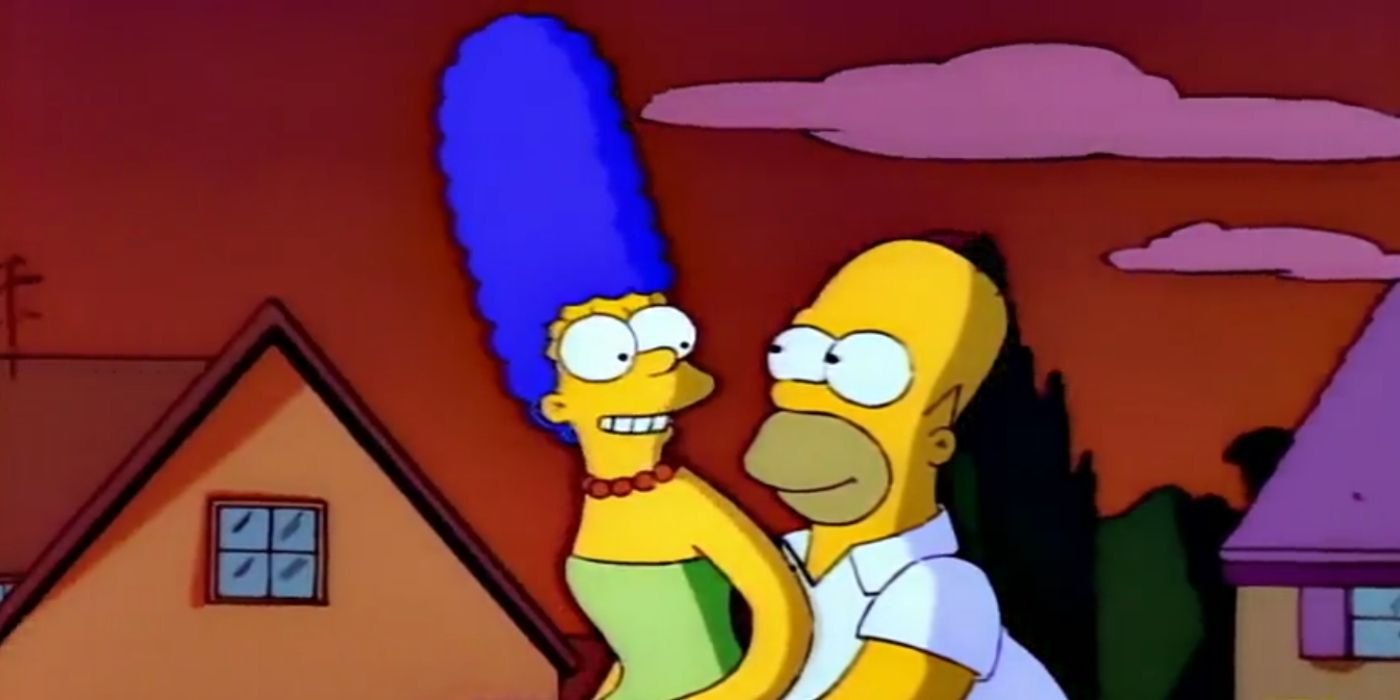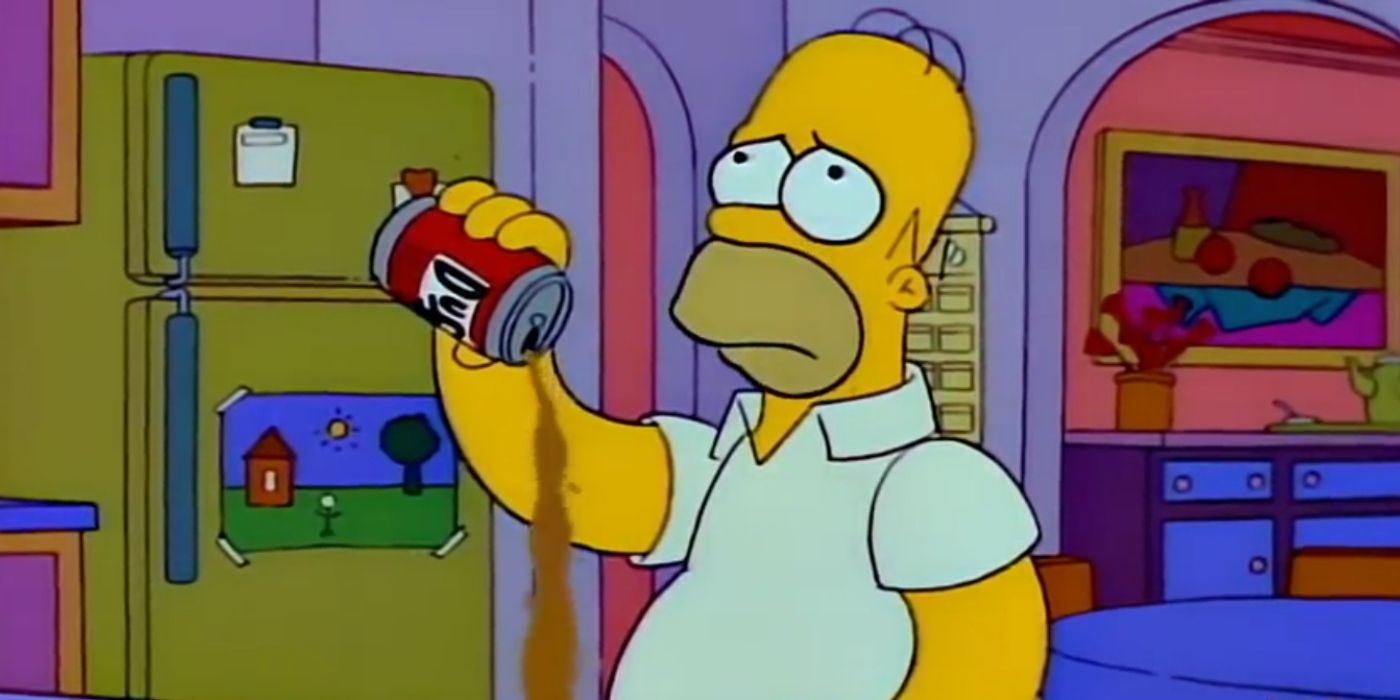"Duffless," one of the most dramatically potent episodes of The Simpsons Golden Age, has a powerful ending where Homer seems to decide to give up drinking. But as a result of the show's static status quo -- the same one that has helped the show remain relevant and flexible into 34 Seasons, those kinds of episodes are inherently subverted.
In episodes like "Duffless," all of the emotional weight of Homer Simpson's decisions, Marge's worries, and their growth has to be reversed by the next episode, quietly undercutting the messages of those highly-acclaimed episodes.
How The Simpsons' 'Duffless' Depicts Homer's Growth
Season 4's "Duffless" -- directed by Jim Reardon with a script by David M. Stern -- largely focuses on Homer. After failing a sobriety test and being arrested for drunk driving, Homer is challenged by Marge Simpson to give up alcohol for a month. Although the task proves incredibly difficult for Homer, he struggles through the month and accomplishes the goal. Quickly returning to Moe's afterwards, Homer gains a new perspective on his regular tavern -- and decides against drinking, leaving the drab bar to spend the night sober while he and Marge enjoy a bike ride together. It's a sweet episode ending on an affectionate affirmation of the show's central relationship, with Homer choosing Marge's company over the relief of a drink.
Given the way the episode portrays Homer's growth and separation from alcohol, it wouldn't have been surprising in another show for this aspect to stick for a while -- Homer ultimately decides to continue to grow by giving up drinking. But in the world of The Simpsons, the status quo is largely unchanging -- flexible enough to allow for all sorts of adventures and stories, but static enough to blunt any fundamental character development for the central cast. While Homer's decision to not drink alcohol in the climax of "Duffless" is a significant beat, it's undercut by the very next episodes which revert Homer to his typical status quo -- including having him drinking beer again in excess.
Why Homer Can't Stop Drinking Despite the 'Duffless' Ending
This double-edged sword has always been something The Simpsons has been forced to deal with, especially as the show aged and evolved to reflect different periods of change in popular culture. The Simpsons family may never get any older, but their characters have evolved across the last three decades of episodes. Major developments can affect characters like the Van Houtens, and characters can deal with death in a very deep and lasting way -- only for the show's comic sensibilities to take over and throw Homer off a building for comedy. The elasticity is a major reason The Simpsons has endured as well as it has, as it allows the show to morph and change and evolve without ever losing the core aspects that make the series so fun. But while certain major life developments can play out, the show's central cast have to retain a certain static place in the world. This means episodes like "Duffless" that go a long way towards changing the central characters becomes a blip in their lives instead of a defining moment.
It's the kind of conundrum only The Simpsons could really confront, as their approach to world-building is so uniquely flexible. The ending of "Duffless" could be seen as a step towards Homer's eventual sobriety -- something confirmed in future-set Simpsons episodes to occur during Lisa's teenage years. Homer's return to alcohol so shortly after realizing what it was doing to his life could be seen as another of the show's frequent reminders about the difficulties of life. It could even been seen as a reminder of how much Marge influences Homer to be a better person -- and how she's likely the biggest reason his attempts to become sober aren't as tragically unsuccessful as Barney Gumble's. But it does mean that "Duffless," which ends on a powerful moment for Homer, ends up being just another episode instead of a defining beat for the character.



